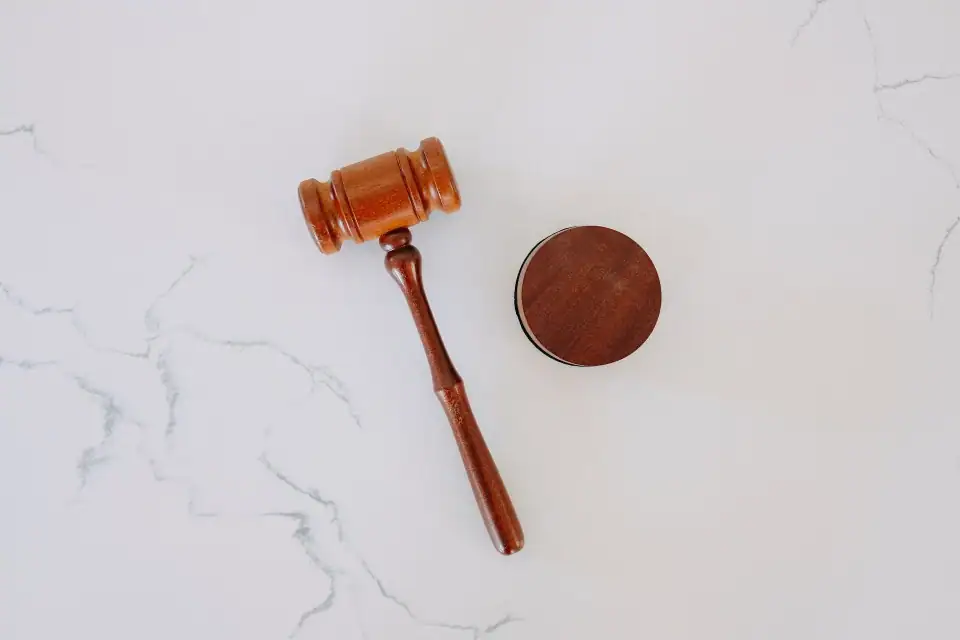When it comes to the legal system, judges play a crucial role in ensuring that justice is served. However, what happens when a judge’s actions or decisions are called into question? Can you sue a judge for judicial misconduct or any other reason? In this article, we’ll take a closer look at the concept of judicial immunity and what it means for those seeking to file a lawsuit against a judge.
What is Judicial Immunity and What Does it Mean?
What is Judicial Immunity?
Simply put, judicial immunity is a doctrine that provides judges with protection from certain types of legal action, even if their actions or decisions result in harm to others. This doctrine is intended to protect judges from harassment and intimidation in the course of carrying out their duties, as well as to ensure the independence and impartiality of the judiciary.
What Does Judicial Immunity Mean?
Judicial immunity means that judges are generally immune from lawsuits based on their conduct in the course of their judicial functions. This immunity protects judges from liability for civil damages for any actions taken in their official capacity as a judge, including decisions rendered in the course of a trial or other legal proceeding.
When Does Judicial Immunity Apply?
Judicial immunity applies in a wide range of situations, including cases involving allegations of judicial misconduct, civil suits for personal injury or property damage resulting from a judge’s decision, and even lawsuits seeking injunctive or declaratory relief against a judge’s decision or action.
Can You Sue a Judge for Judicial Misconduct?
What is Judicial Misconduct?
Judicial misconduct refers to any actions by a judge that are deemed to be improper, unethical, or in violation of the judge’s duties or obligations under the law. This can include a wide range of behaviors, from failing to properly disclose conflicts of interest to making biased or prejudicial rulings against litigants.
Can You Sue a Judge for Judicial Misconduct?
In general, judicial immunity precludes individuals from suing a judge for judicial misconduct. However, there are certain circumstances under which a judge may be sued for violating a litigant’s constitutional or statutory rights, or for acting in a grossly negligent or malicious manner.
What Happens if a Judge is Found to Have Committed Judicial Misconduct?
If a judge is found to have committed judicial misconduct, he or she may be subject to administrative sanctions imposed by the judicial council or the chief judge of the court. In extreme cases, a judge may be removed from the bench or face criminal charges for his or her actions.
How to Sue a Judge?
What is the Procedure for Suing a Judge in State Court?
In most cases, the procedure for suing a judge in state court involves filing a complaint with the clerk’s office of the court where the judge presided over the case. The complaint should outline the specific allegations of misconduct or other legal grounds for the lawsuit.
What is the Procedure for Suing a Judge in Federal Court?
The procedure for suing a judge in federal court is slightly different than in state court. In order to bring a lawsuit against a federal judge, the litigant must file a complaint with the United States District Court in the jurisdiction where the judge sits. The litigant must also name the judge as a defendant in the lawsuit.
What Are Some Common Reasons for Suing a Judge?
Some common reasons for suing a judge include allegations of bias or prejudice against a particular litigant, violations of a litigant’s constitutional or statutory rights, and failures to properly disclose conflicts of interest or other ethical lapses.
What Happens When a Judge Violates Judicial Immunity?
What Happens When a Judge Violates Judicial Immunity?
When a judge violates judicial immunity, he or she may be subject to sanctions or disciplinary action by the judicial council or other administrative bodies with jurisdiction over the judiciary.
Can a Judge be Held Liable for Violating Judicial Immunity?
No, a judge cannot be held liable for violating judicial immunity. This doctrine provides absolute protection to judges from civil liability for any actions taken in the course of their judicial functions.
What are the Consequences for a Judge Who Violates Judicial Immunity?
The consequences for a judge who violates judicial immunity can include administrative sanctions, removal from the bench, or even criminal charges if the judge’s actions rise to the level of a criminal offense.
When Can You Sue a Judge?
What are Some Common Reasons for Suing a Judge?
As previously mentioned, some common reasons for suing a judge include allegations of judicial misconduct, bias or prejudice against a particular litigant, and breaches of a litigant’s constitutional or statutory rights. In addition, individuals may choose to sue a judge for a wide range of other reasons, such as family law matters or disputes involving other judicial officers.
When Can a Judge be Sued for an Egregious Judicial Act?
In some cases, judges may be sued for an egregious judicial act, such as a ruling that clearly violates a litigant’s constitutional rights or is otherwise so far outside the bounds of accepted legal practice that it amounts to gross negligence or malicious intent.
What is the Difference Between Suing a Judge and Suing a Judicial Officer?
The difference between suing a judge and suing a judicial officer is primarily one of jurisdiction. In general, the procedures for bringing a lawsuit against a judge and against another type of judicial officer (such as a magistrate or court clerk) are similar, but there may be slight differences in the court rules or procedures governing these types of cases.
In conclusion, while judicial immunity provides judges with broad protection against lawsuits based on their official actions, there are some circumstances under which a litigant may have grounds to sue a judge for misconduct or other legal violations. It is important to understand the legal requirements and procedures involved in bringing such a lawsuit, and to consult with a qualified attorney before filing any legal action against a judge or other judicial officer.
Q: What is the doctrine of judicial immunity?
A: The doctrine of judicial immunity is a common-law principle that provides judges with absolute immunity from civil lawsuits for actions taken in their judicial capacity.
Q: Can I sue a judge for judicial conduct?
A: Judicial conduct is subject to administrative oversight, but in most cases, you cannot sue a judge for judicial conduct. This is because judges are granted absolute immunity from civil lawsuits for actions taken in their judicial capacity unless they acted corruptly or maliciously and outside of their jurisdiction.
Q: Can I file a complaint against a judge?
A: Yes, you may file a complaint against a judge with the appropriate administrative body responsible for judicial oversight, such as the state or federal judicial conduct commission.
Q: What can happen if a judge acts in an unconstitutional manner?
A: If a judge acts in an unconstitutional manner, the judge may be subject to disciplinary action, removal from the bench, and in some cases, may face criminal charges.
Q: Can a judge without subject matter jurisdiction be sued?
A: Yes, a judge without subject matter jurisdiction may be sued. This is because subject matter jurisdiction is a requirement for the validity of a court’s judgment, and a court without subject matter jurisdiction lacks the power to render a decision.
Q: Can I sue another judge for the actions of a judge in my case?
A: No, you cannot sue another judge for the actions of a judge in your case. Judges are afforded absolute immunity from civil liability, including for actions taken by other judges.
Q: What is the process for filing a lawsuit against a judge?
A: The process for filing a lawsuit against a judge is lengthy and complex. It generally requires a showing of the judge’s act of misconduct, a lack of absolute immunity, subject matter jurisdiction, and compliance with local rules and federal constitutional requirements such as Article III of the US Constitution and 42 U.S.C. § 1983.
Q: What is the difference between a federal district judge and a state judge?
A: A federal district judge is appointed by the President of the United States and confirmed by the U.S. Senate for a lifetime appointment. State judges are generally appointed or elected by the state governor or legislature and serve for a term of years.
Q: Can I sue a court employee for damages resulting from acts of the judge?
A: In most cases, court employees are protected by absolute immunity from civil liability for damages resulting from acts of the judge. However, if the court employee acted outside of their official duties, they may not be protected by immunity and could be sued for damages.
Q: Can judges be criminally prosecuted for their actions on the bench?
A: Yes, judges could potentially be criminally prosecuted for their actions on the bench if they acted corruptly, maliciously, or outside of their jurisdiction and violated federal or state laws.







